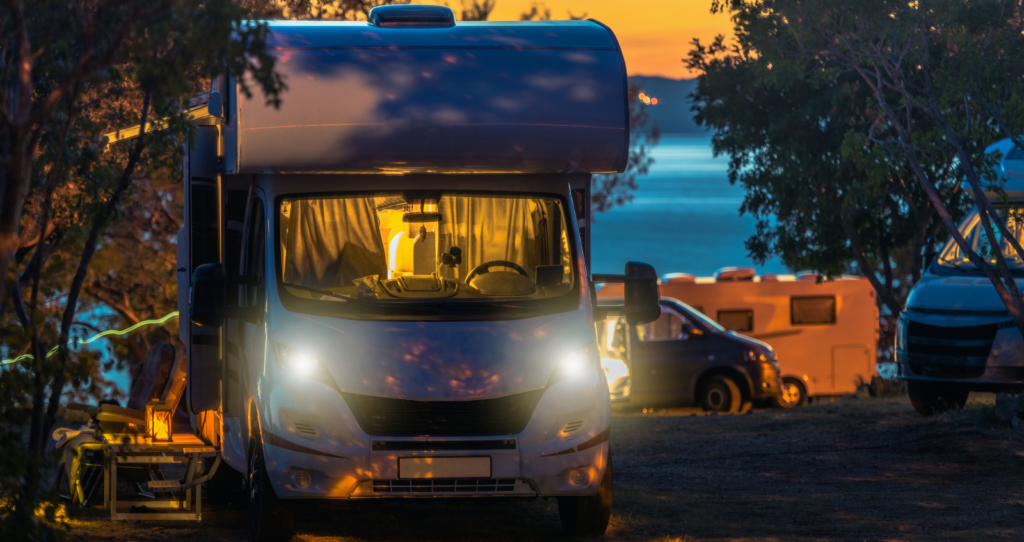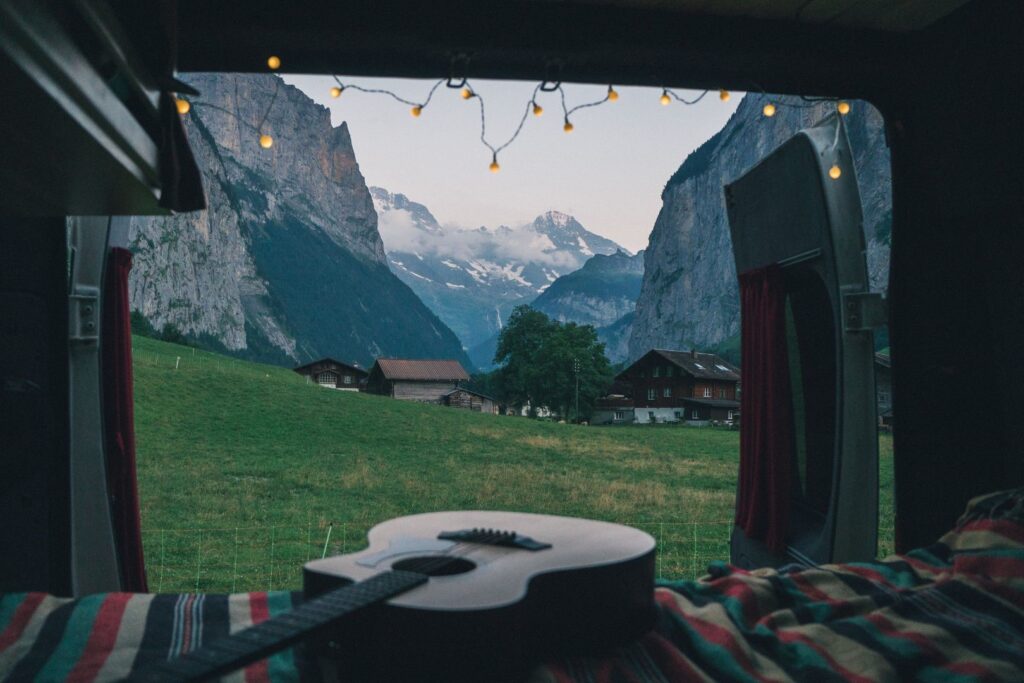Most of the time, van life and RV adventuring means getting away from it all. Most van lifers agree that the best part of living in your van is camping out in the wilderness or staying in one of the incredible campsites provided by our state and national parks.
However, some nights, you find yourself stuck in urban areas, or you may be in a place where there are no good available camp spots. In these cases, you may have to resort to stealth camping to get a good night’s sleep.
In this article, we’ll talk about stealth camping: what it is, if it’s legal, whether you should do it, and what to do if you find yourself stuck without a parking space in the middle of the night. If you’ve never heard of stealth camping and aren’t sure what the rules and laws are surrounding it, read on.
Table of Contents

What is Stealth Camping?
The term “stealth camping” refers to the practice of camping in a place that isn’t typically used as a campsite. There are ways to stealth camp other than in your van – for example, backpackers who camp in unconventional places sometimes refer to it as “wild camping” or “dispersed camping.”
A stealth camping spot is any place where you can camp overnight, but that isn’t typically designated as an overnight camping spot. Stealth camping could mean street parking in a downtown urban area, or it could be parking on the side of a back country road, or in a residential neighborhood. Some people stealth camp at truck stops, in hotel parking lots, near apartment complexes, outside grocery stores, gas stations, in a public parking lot overnight, etc.
Is Stealth Camping Illegal?
The short answer here is: sometimes. There are no federal laws that make it illegal to sleep in your car. The laws on overnight parking and sleeping overnight in your vehicle are governed by states and counties, and they vary widely from state to state.
In California, for example, it is legal to sleep for up to eight hours at a rest stop. Many cities in California, however, have made it illegal to sleep in your vehicle, even in places where overnight parking is legal. Berkeley, Los Angeles, and San Francisco all have laws against sleeping in your car, and you could face fines, tickets, or even have your vehicle towed for doing so.
Most of these laws are enacted because of the high homeless populations in these cities, or because local motels and campsites want stealth campers’ business.
There are ways to stealth camp legally: for example, some Walmarts allow overnight parking, and you may be able to find hospital parking lots that allow overnight campers, or businesses that will permit you to stay overnight in their parking lot if you support their business (buy a meal at a restaurant, for example).
If you’re outside the city, you may be able to find free camping on BLM land or some national forest land. You can use apps like iOverlander to find free campsites like these.


Should You Camp Where It's Not Legal?
The answer to this question comes down to your comfort level and willingness to take risks. Many van lifers report that they have stealth camped in places like San Francisco without incident, and there are ways to make your vehicle less obvious to law enforcement.
We can’t tell you one way or the other whether stealth camping in any particular area is a good idea. Sometimes, it’s unavoidable, but we recommend trying to plan your trips so that car camping in places where it isn’t allowed doesn’t happen.
When It Makes Sense to Stealth Camp
There may be times when stealth camping is your only option. If it’s very late and you’ve been driving so long that continuing to drive would be dangerous, pulling over to grab a few hours of sleep will usually be safer than trying to push through and stay awake.
In this case, if you are approached by law enforcement, you may be able to explain that you felt it was unsafe to keep driving and that you had no choice but to pull over and sleep.

Stealth Camping Tips and Safety Considerations
If you find yourself stuck with no alternative, there are some things you can do to make your stealth camper van less obvious and keep yourself safe while urban camping.
Obey Parking Signs
The most important thing you can do when camping on city streets is pay close attention to the parking laws. If you park overnight on a street where that isn’t allowed, you are likely to get caught.
Look for residential neighborhoods where people park their cars on the city street overnight or an apartment complex parking lot. If you choose to camp in a lot, make sure the lot doesn’t close overnight or require a parking pass.
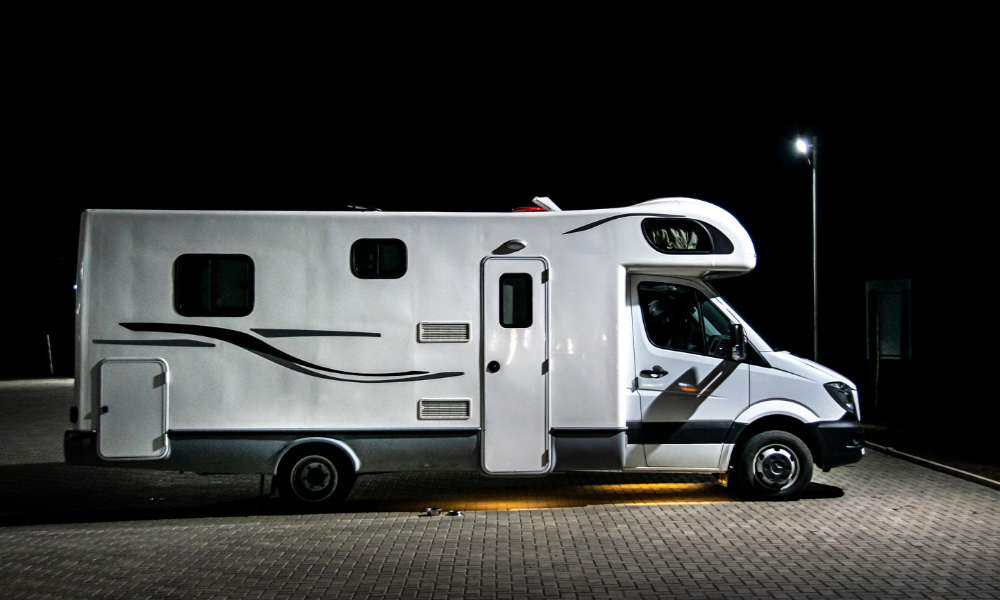
Arrive Late and Leave Early
By showing up late and leaving early, you will avoid being seen by a lot of curious people, and your vehicle is less likely to be noticed by law enforcement. The longer your car is parked in a single spot, the more likely people are to be suspicious about it. Don’t stay too long in any one place.
Don't Be the Only Car in Plain Sight
If there are no other cars parked overnight in the place you’ve chosen, then your car is going to stick out like a sore thumb. Remember: law enforcement aren’t the only people you need to worry about. Someone might try to break into a vehicle if they see it parked by itself and think no one is inside. Choose safe, well-lit places to avoid getting into trouble.
Don't Draw Attention to Your Vehicle
Choose places where your vehicle will blend in with those around it. Motel parking lots often have RVs or other camper vans in them overnight, so these can be a good place to stay. Van life conversion vans that don’t obviously look like RVs can often get away with parking in more places than a vehicle that someone is obviously sleeping in can.
Put up black curtains in all the windows to block light from inside your vehicle, keep noise down, and don’t set up any outdoor furniture like chairs or a grill. This is stealth camping, after all. “Stealth” is the name of the game here.
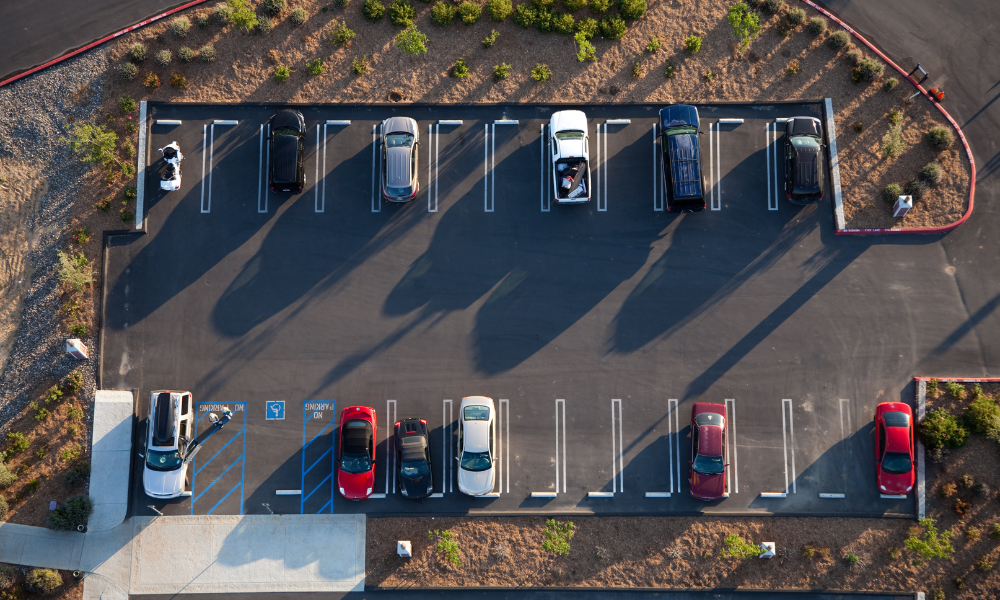
Consider Your Electricity Needs
Stealth camping spots don’t have shore power – there will be nowhere to plug your vehicle in. Make sure your batteries are fully charged and limit power consumption if you have to stealth camp for a long time. If you have solar panels that can be set up without drawing attention to your vehicle, great.
Helpful Gadgets for Stealth Camping
There are a few things you can keep in your van to make stealth camping easier. For example, thick blackout window covers or curtains not only make your vehicle less noticeable but also prevent light from coming in, which is useful if you are parked in a place with a lot of bright streetlights. Ear plugs can also be useful if you’re in a busy urban area with a lot of noise.
Apps like iOverlander, Google Maps, and The Dyrt can help you find suitable parking spots where you can sleep overnight. iOverlander, in particular, is a great resource for finding BLM land if you want to camp legally and can drive out to remote areas.
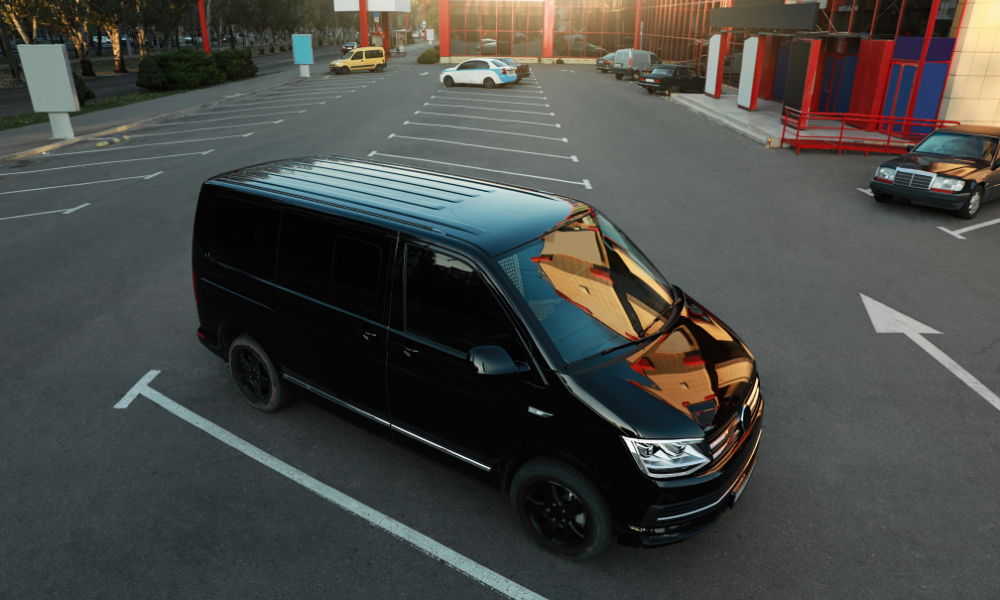
Final Thoughts on Stealth Camping
Stealth camping is not usually peoples’ first choice when it comes to finding van life camping. Ideally, you should be planning your journeys so that stealth camping isn’t necessary. Sometimes, however, things happen, and you have no choice but to find a parking spot where you can grab a few hours of sleep.
We can’t tell you whether or not stealth camping is a good idea. But if you do find yourself having to do it, remember to park safely, obey parking signs, and draw as little attention to your vehicle as possible. If you follow those tips, you should be able to camp under the radar without problems.
